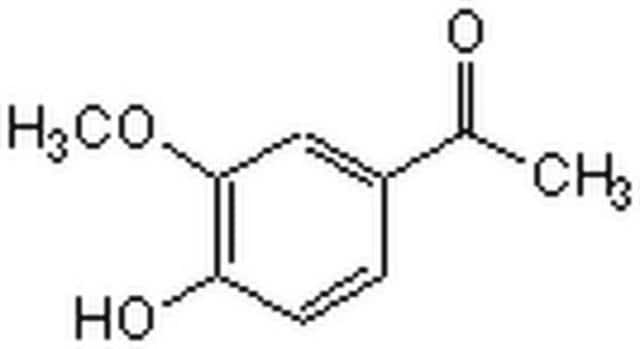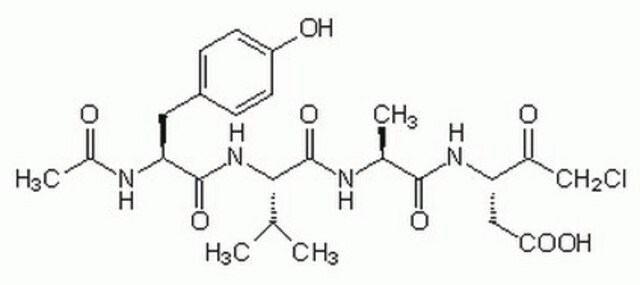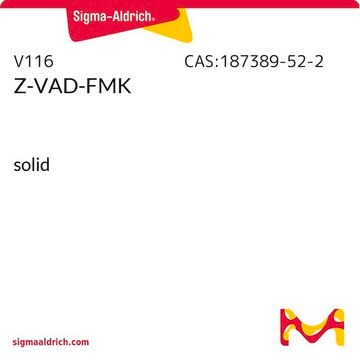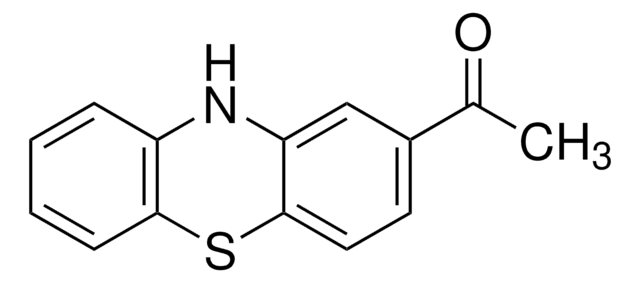SML0273
VAS2870
≥97% (HPLC)
Synonym(s):
1,3-Benzoxazol-2-yl-3-benzyl-3H-[1,2,3]triazolo[4,5-d]pyrimidin-7-yl sulfide, 7-(1,3-Benzoxazol-2-ylsulfanyl)-3-benzyl-3H-[1,2,3]triazolo[4,5-d]pyrimidine, 7-(2-Benzoxazolylthio)-3-(phenylmethyl)-3H-1,2,3-triazolo[4,5-d]pyrimidine, VAS 2870, VAS-2870
About This Item
Recommended Products
Quality Level
Assay
≥97% (HPLC)
form
powder
color
white to beige
solubility
DMSO: ≥5 mg/mL
storage temp.
room temp
SMILES string
C(c1ccccc1)n2nnc3c(Sc4nc5ccccc5o4)ncnc23
InChI
1S/C18H12N6OS/c1-2-6-12(7-3-1)10-24-16-15(22-23-24)17(20-11-19-16)26-18-21-13-8-4-5-9-14(13)25-18/h1-9,11H,10H2
InChI key
HZSOKHVVANONPV-UHFFFAOYSA-N
Application
- to study the importance of NOX-derived reactive oxygen species in cytoskeletal organization, proper localization of E-cadherin and cell motility during zebrafish epiboly
- to study the function of Nox2 and Nox4 in lipopolysaccharide (LPS)-induced intestinal injury in high-fat diet (HFD) fed mice
- to reduce the reactive oxygen species level and study its influence on inhibiting the induction of trained innate immunity in monocytes
Biochem/physiol Actions
Storage Class Code
11 - Combustible Solids
WGK
WGK 3
Flash Point(F)
Not applicable
Flash Point(C)
Not applicable
Certificates of Analysis (COA)
Search for Certificates of Analysis (COA) by entering the products Lot/Batch Number. Lot and Batch Numbers can be found on a product’s label following the words ‘Lot’ or ‘Batch’.
Already Own This Product?
Find documentation for the products that you have recently purchased in the Document Library.
Customers Also Viewed
Our team of scientists has experience in all areas of research including Life Science, Material Science, Chemical Synthesis, Chromatography, Analytical and many others.
Contact Technical Service











